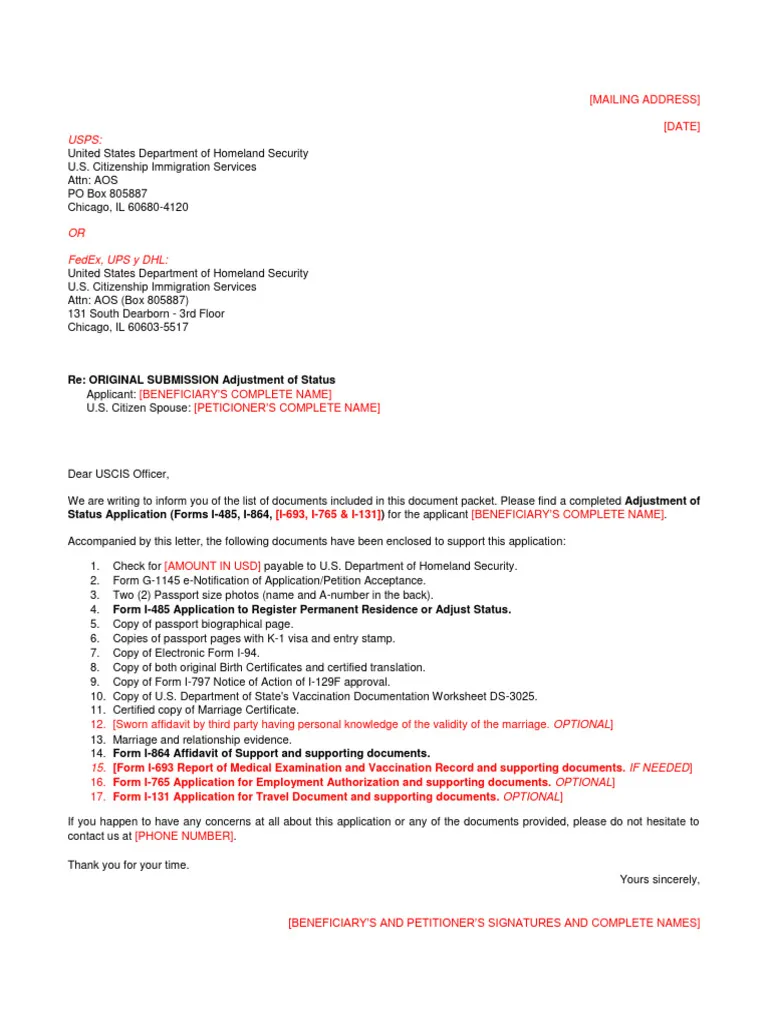Why a Cover Letter is Crucial for Out-of-State Jobs
Landing an out-of-state job presents unique challenges, and a well-crafted cover letter is your secret weapon. It’s your first impression, a chance to differentiate yourself from local candidates, and a powerful tool to address the elephant in the room – your relocation. Unlike local applicants, you need to convince employers that you’re worth the extra effort and investment. A strong cover letter allows you to proactively address concerns, showcase your enthusiasm, and demonstrate your understanding of the job and the company. Neglecting this vital step can significantly reduce your chances of getting an interview, as your application might be immediately dismissed if you don’t clearly articulate your intentions and qualifications. Therefore, mastering the art of the out-of-state cover letter is an essential part of your job search strategy.
Understanding the Out-of-State Job Market
Before you even begin writing, it’s crucial to understand the nuances of the out-of-state job market. Research the specific location, industry trends, and the cost of living. Some areas might be more competitive than others, and understanding these factors will help you tailor your cover letter to the specific needs of the employer. Look into the company’s presence in that area and their hiring practices. Are they actively seeking out-of-state candidates? Are they familiar with relocation packages? Use this knowledge to position yourself strategically. A cover letter that shows you’ve done your homework is far more likely to capture an employer’s attention.
Researching Companies and Locations
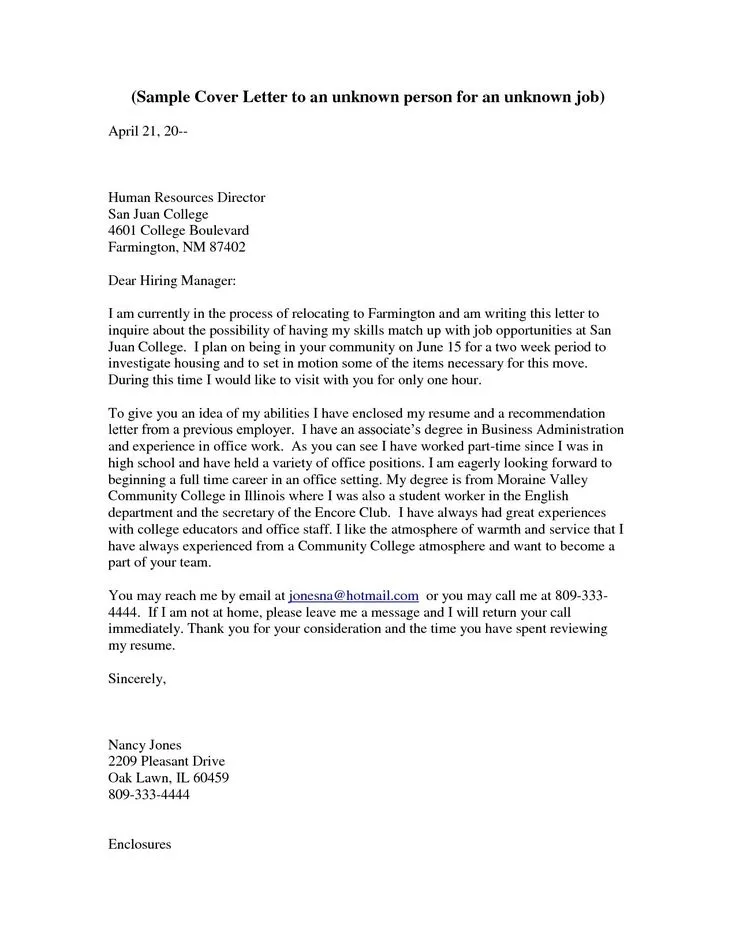
Thorough research is the cornerstone of a compelling out-of-state cover letter. Dive deep into the company’s website, social media profiles, and industry news to understand their mission, values, and recent achievements. Explore the location’s culture, lifestyle, and potential challenges. This information allows you to personalize your letter and demonstrate a genuine interest in both the job and the place. Highlight how your skills and experience align with the company’s specific needs and goals, and address any concerns they might have about your relocation. For example, if the company values innovation, you can mention a project where you successfully implemented a new idea. Such specific examples will make your application stand out.
Key Elements of an Effective Out-of-State Cover Letter
An outstanding out-of-state cover letter goes beyond a generic summary of your resume. It’s a strategic document that addresses the employer’s concerns and highlights your unique value proposition. It should clearly articulate your interest, qualifications, and relocation plans, and it should be tailored to each specific job and company. The letter must be well-written, concise, and free of errors. It must demonstrate your understanding of the job and the company’s needs. By focusing on these key elements, you can significantly increase your chances of getting an interview and landing the out-of-state job you desire.
Addressing the Out-of-State Factor
The most critical aspect of your out-of-state cover letter is addressing the relocation factor head-on. Don’t shy away from it; embrace it. Clearly state your willingness to relocate, and if you have any specific relocation plans, mention them. Do you already have a timeline or are you flexible? Have you started looking for housing? The more proactive you appear, the more attractive you’ll be to potential employers. If you have ties to the area or a strong reason for wanting to relocate, be sure to mention those as well. Addressing this factor demonstrates your seriousness and commitment.
Highlighting Relevant Skills and Experience
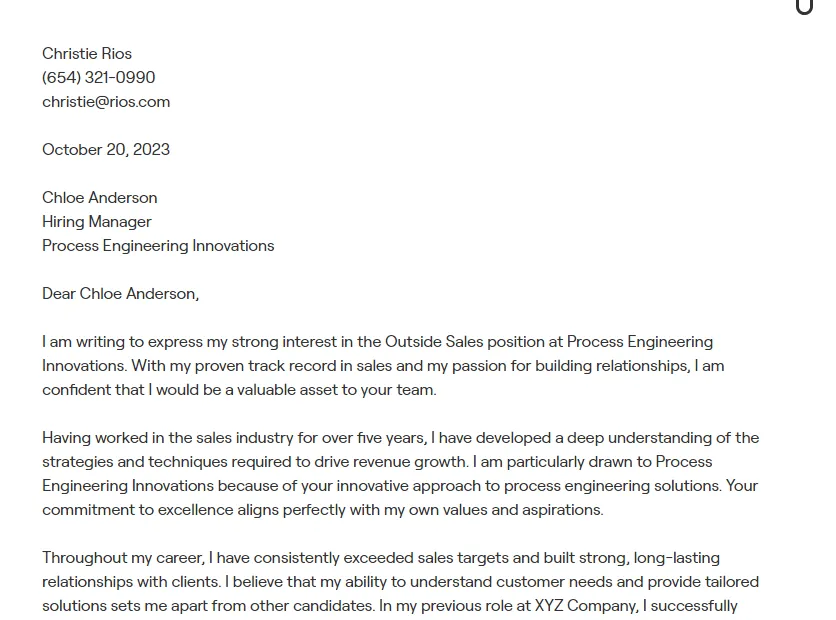
Your cover letter is your chance to showcase the skills and experiences that make you the ideal candidate. Carefully review the job description and identify the key requirements. Then, provide specific examples of how you’ve demonstrated those skills in your previous roles. Quantify your accomplishments whenever possible. For example, instead of saying “Managed projects,” say “Managed projects resulting in a 15% increase in efficiency.” Use action verbs and focus on the results you achieved. This detailed approach will make your qualifications much more compelling and demonstrate the value you’ll bring to the company.
Emphasizing Your Interest and Enthusiasm
A genuine interest in the job and the company is crucial. Show that you’ve done your research and that you’re excited about the opportunity. Mention specific aspects of the role or the company that resonate with you. Explain why you are interested in this specific position and why you want to work for them. Avoid generic statements and instead, inject personality and enthusiasm into your writing. This will make you memorable and make the employer more likely to call you for an interview. Showing your eagerness will set you apart from the competition and demonstrate your drive to succeed.
Structuring Your Out-of-State Cover Letter
A well-structured cover letter is easy to read and effectively conveys your key messages. A standard cover letter format includes an opening paragraph, body paragraphs, and a closing paragraph. Each section plays a specific role in presenting your qualifications and persuading the employer to offer you an interview. The structure should be logical, clear, and tailored to the specific needs of an out-of-state job application. Sticking to this conventional structure helps organize your thoughts and allows you to highlight the most important details concisely.
The Opening Paragraph
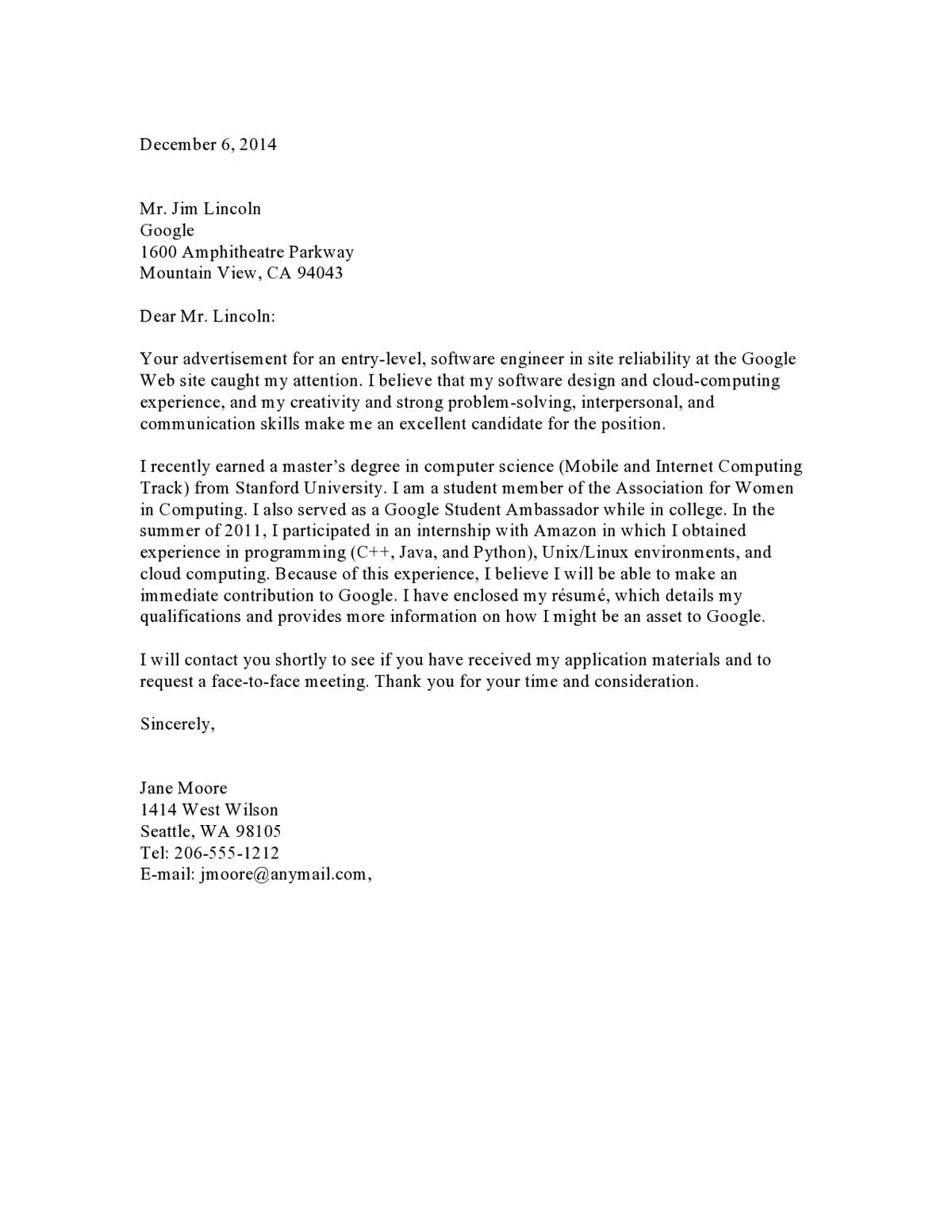
The opening paragraph is your first opportunity to grab the reader’s attention. Start by clearly stating the position you’re applying for and where you saw the job posting. Immediately express your interest in the role and the company. If you have a connection to the company or a specific person, mention it here. The opening should be concise and compelling, setting the tone for the rest of the letter. It should establish why you are interested and why you’re a good fit. Keep it short, engaging, and make sure it clearly addresses the out-of-state factor.
Body Paragraphs
The body paragraphs are where you showcase your skills, experience, and accomplishments. Tailor these paragraphs to match the specific requirements of the job description. Use the STAR method (Situation, Task, Action, Result) to provide concrete examples of your successes. Address the out-of-state factor by explicitly mentioning your relocation plans or ties to the area. Focus on the benefits you can bring to the company. Be concise and make sure your writing is clear and easy to read. Use headings or bullet points to break up long blocks of text and make it more appealing.
The Closing Paragraph
The closing paragraph is your call to action. Reiterate your interest in the position and the company, and express your eagerness to discuss your qualifications further. Thank the reader for their time and consideration. Provide your contact information and include a professional closing, such as “Sincerely” or “Best regards.” The closing paragraph is your last chance to leave a positive impression. Ensure it is professional, polite, and leaves the hiring manager with a clear path to contact you.
Tips for Formatting and Presentation
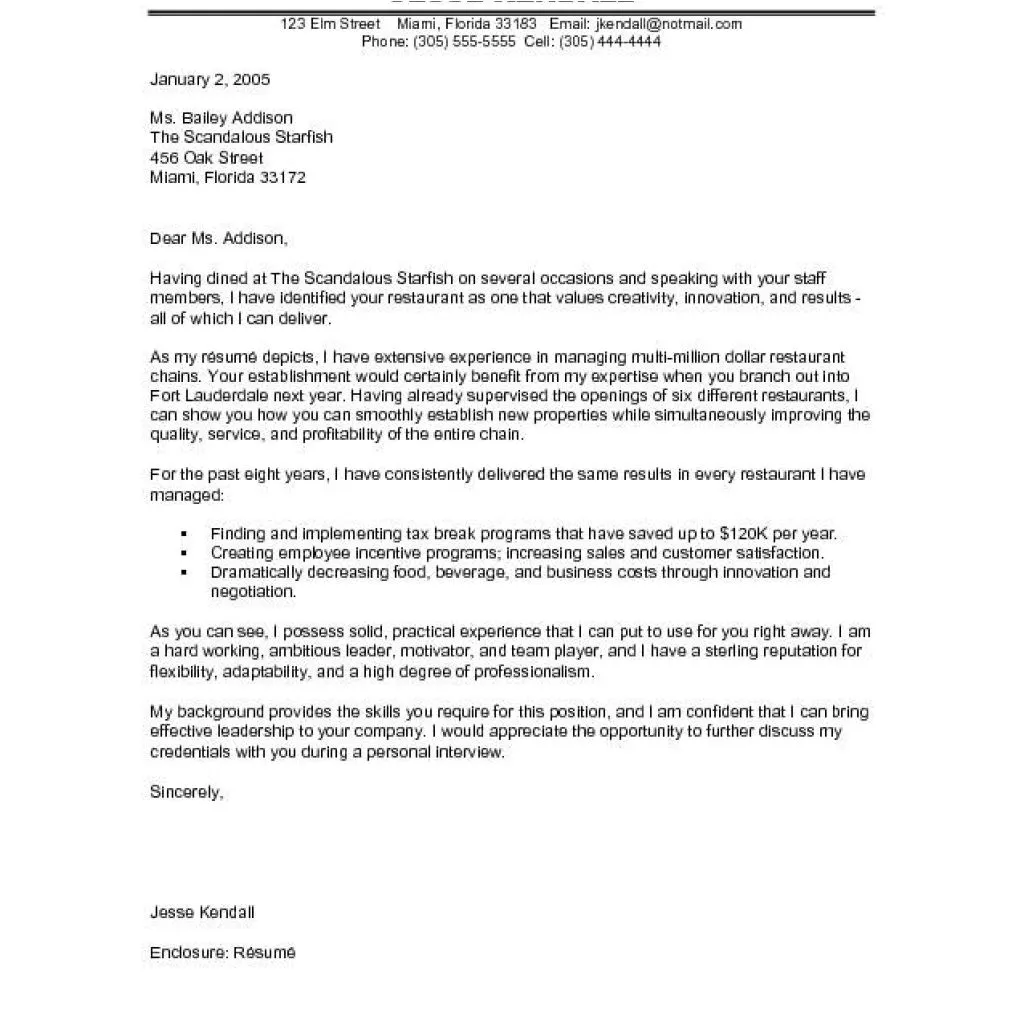
The formatting and presentation of your cover letter are just as important as the content. Use a professional font, such as Times New Roman, Arial, or Calibri, and keep the font size between 10 and 12 points. Use single-spacing within paragraphs and double-spacing between paragraphs. Ensure your letter is free of typos and grammatical errors. Proofread it carefully and consider asking someone else to review it. Save your cover letter as a PDF file to maintain the formatting. A well-formatted cover letter demonstrates attention to detail and professionalism, reflecting positively on your candidacy.
Showcasing Your Adaptability and Flexibility
Out-of-state jobs often require a high degree of adaptability and flexibility. Demonstrate these qualities in your cover letter. Highlight experiences where you’ve successfully adapted to new environments, learned new skills, or handled unexpected challenges. This can include mentioning previous relocation experiences, projects where you had to quickly learn new technologies, or situations where you had to work effectively with diverse teams. Show that you’re a quick learner and can embrace change. These examples demonstrate your ability to thrive in new surroundings and your willingness to step outside of your comfort zone.
Demonstrating a Proactive Approach
Employers are looking for candidates who take initiative. In your cover letter, demonstrate a proactive approach. Research the company and the industry. Customize your letter to show you understand their specific needs. Offer solutions to their problems and show them that you are ready to get started. Include details of how you plan to familiarize yourself with the new location if relevant. The more you show a proactive approach, the more likely you are to impress a potential employer and secure an interview. This initiative indicates that you are serious and committed to the opportunity.
Mentioning Your Relocation Plans

Be clear and concise about your relocation plans. Do you have a specific timeline for moving? Are you open to starting the job remotely and then relocating? Do you have any connections to the area that will make relocation easier? Providing this information assures the potential employer of your sincere interest and practical approach to the job. If you are still in the planning stages, it is okay to state your intention to relocate if you are offered the position. Being transparent about your plans will show you are serious and willing to take the required steps.
Proofreading and Editing Your Cover Letter
Proofreading and editing your cover letter is an absolute must. Typos, grammatical errors, and poor sentence structure can undermine your credibility. Read your cover letter multiple times, checking for any errors. Then, ask a friend, family member, or career counselor to review it. They may be able to catch mistakes that you missed. Ensure your letter is free of jargon and overly complex language. Always remember that a polished cover letter is an indication of your professionalism and attention to detail, and it can significantly increase your chances of landing an interview.
Common Mistakes to Avoid
Avoid common mistakes that can immediately disqualify your application. Do not use a generic cover letter; tailor it to each job. Avoid vague language and instead, use specific examples to demonstrate your skills and experience. Do not focus solely on what you want; highlight what you can offer the employer. Refrain from negative comments or complaints about previous employers. Never include sensitive information, such as your salary expectations, unless specifically requested. By avoiding these mistakes, you increase your chances of creating a strong, effective cover letter that gets you noticed.
Seeking Feedback Before Submitting
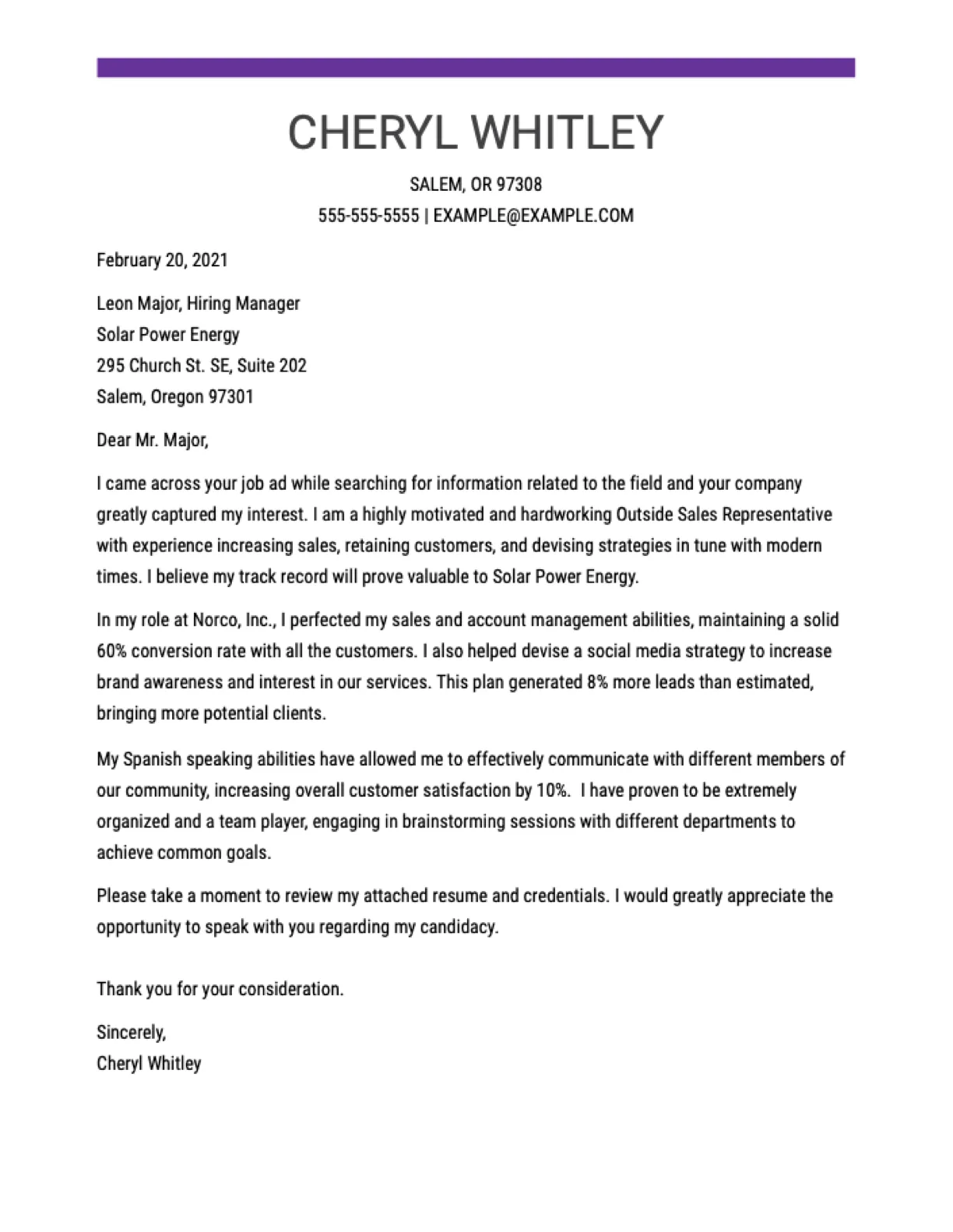
Before submitting your cover letter, seek feedback from trusted sources. Ask friends, family members, career counselors, or mentors to review your letter and provide constructive criticism. They can provide a fresh perspective and help you identify any areas for improvement. Pay close attention to their feedback and be open to making revisions. Proofreading your cover letter will help you catch mistakes you might have missed. A second pair of eyes can be invaluable in creating a polished, professional document that will significantly increase your chances of success in the job search.
